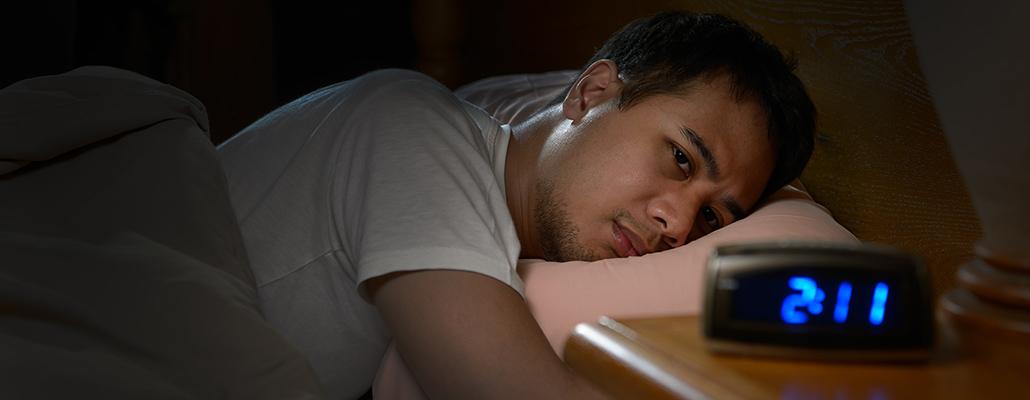5 Reasons You May Be Having Sleepless Nights
Nearly 30% of American adults struggle with chronic insomnia, and that percentage increases with age. Standard treatment includes sleeping pills and cognitive therapy. Cognitive therapy shows a lot of promise as an effective treatment and sleeping pills, though presenting some risks, can be helpful for the short-term. It is a condition, however, according to standard approaches, that can be treated, but unfortunately, not cured. And while many Americans don't meet the criteria of a ‘chronic insomnia’ label, anyone who lacks proper sleep on a regular basis will eventually suffer physical, mental and emotional health consequences. Besides the obvious fatigue that comes along with many types of insomnia, there can be accompanying effects such as headaches, dizziness, and sore muscles as well as mood issues. One large study found that those with insomnia were five times more likely to suffer from depression than those who got adequate sleep. This is in addition to other associated effects on brain health, cardiovascular health, immunity and weight.
Acupuncturists typically always ask about quantity and quality of sleep no matter the initial complaint or reason for seeking treatment. This is because as holistic health practitioners, we recognize the enormous impact sleep has on the overall health experience. If there are any deficits when it comes to sleep, this will usually be part of the focus for treatment. In Traditional Chinese Medicine (TCM), night time is yin time, a time for rest, healing and recovery. It needs to be in balance with yang time (daytime) activity levels. This harmony of yin and yang is central to the TCM understanding of health.
Acupuncture takes an individualized approach to insomnia, as everyone is different, and there can be many reasons why someone is out of balance. In addition to external factors such as trauma or stress, a person’s internal environment will be looked at. A pattern assessment is done to evaluate both the abundance and flow of blood and energy (qi) in the body, excess hot or cold type disorders and any organ imbalances. But is it effective?
In a review of random controlled trials evaluating the effectiveness of acupuncture for insomnia, acupuncture was found superior to medications in its ability to increase sleep duration for >3 hours. Also, acupuncture plus medications showed better effect than medications alone on total sleep duration. And finally, acupuncture plus herbs was significantly better than herbs alone on increase of sleep rates. Worthwhile to note that there were no serious adverse effects of acupuncture observed in any of the trials.
According to Western physiology, acupuncture affects our ability to sleep by triggering the release of our sleep hormone: melatonin, and various other mechanisms still being studied, such as the activation of specific brain pathways involved in sensory processing . Acupuncture is also known to stimulate the vagus nerve, which helps shift the whole body into a more relaxed state. When the body goes into this relaxed state, not only does sleep quality improve, the body also turns on the immune and repair systems, cutting down oxidative stress and inflammation in the body.
Here are 5 ways you might be throwing off your own sleep and wake cycles:
1) Ingesting Too Much Yang: Before bed, or in general, spicy food, alcohol or stimulants can disturb sleep. Spicy food and alcohol causes heat in the system, which creates excess yang in the body. Too much coffee also keeps yang qi stuck at the surface to be available for activity. Even just having a large meal before bed can block the yang energy from going deep in the body at night.
2) Too Much Activity/Excitement: The yang qi is needed deep on the inside of the body at night, don't hold it hostage with outward energy requirements. Stop exercising at least 90 minutes before bedtime. This allows for endorphin levels and body temperature to return to levels that are conducive to sleep. Try not to argue before bed, or even get too excited. Give yourself time to wind down & transition.
3) You need to Cool Down: Literally. Yin is associated with coolness. To invite your yin qi to come out at night keep the bedroom temperature between 60-67℉.
4) Too Much External Stimulation: Lights, especially blue light from tvs, phones and computer screens prevent melatonin release in the body, making it harder to fall asleep. If you have to finish work on a computer, wear blue blocker glasses. Also, yin time should be quiet time, so turn off the tv and any sources of noise that can disturb the peace.
5) Too Much Stress, Not Enough Rest: We live in a yang-obsessed world. This creates stress as many of us are over-worked and over-stimulated, while not always having time for a healthy self-care practice (meditation, walks etc). This leaves us with a restless mind (‘disturbed shen’ in TCM terms), and can keep us lying in bed exhausted, but unable to sleep. The challenge is to resist the modern day pressure to keep up and create more self-care time to support a more balanced lifestyle.
Given the interrelationship of sleep and overall health, if all acupuncture did was improve sleep, it would still merit recognition as a valuable health system. But Acupuncture is prescribed for so much more! Call today to set up a sleep and overall health improving series of treatments and start feeling the benefits right away!
